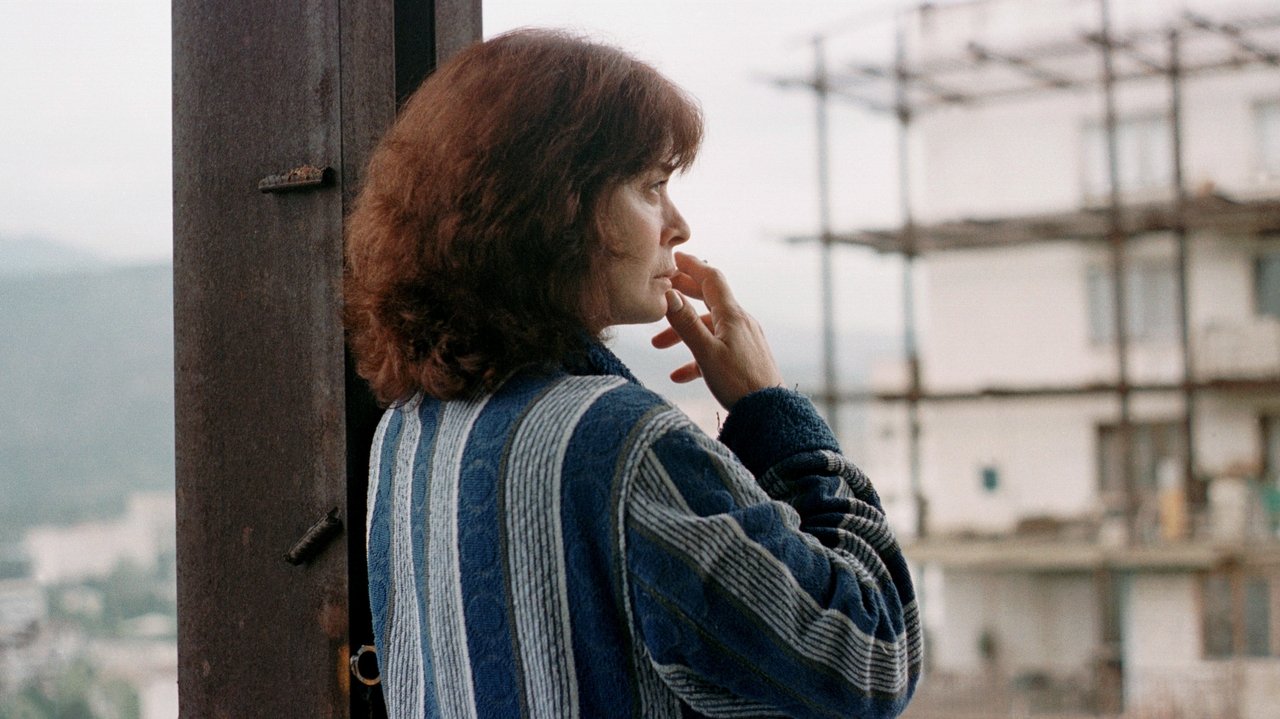paul2001sw-1
With explicit themes such as poverty, exile, old age and death, 'Since Otar Left' does not exactly make a pitch as light entertainment; and a subtle screenplay that wrings every last note of poignancy from its basic scenario could be seen to aggravate matters even further. But as well as its script, this film has other merits, including fine cinematography and excellent performances from its small cast. Perhaps what's best of all is the way that it combines universal themes with the particulars of its situation, in the former Soviet republic of Georgia. The characters' own story reflects (and is indeed part of) the story of the country as a whole; and that is the story of the death, and eventual rebirth, of hope itself. This is a film that isn't always easy viewing, but it's also worth sticking with.
Felix-28
I was hoping this film would be good, and expecting it to be, but I was disappointed by it.For me, the basic premise was not acceptable. Otar had gone to Paris and was working there, apparently illegally. In a situation like that, he would have been in contact with a whole network of illegal immigrants, mostly from his own country, and they in turn would have been in contact with relatives at home in Georgia. The relatives at home would have been in contact with each other, with news from the expats in France. Otar's death would have been well known, and it could not have been kept from his mother for months, as it supposedly was.Also, the trip to Paris at the end. Just what did the sister and daughter think was going to happen in Paris? Did they really think that the mother would not find out?And then the scene at the end, where the grandmother announces that Otar's gone to America. Really, it was just a bit too much to swallow. Not to mention the daughter deciding to stay in Paris at the last moment: not only is it impossible for non-passengers to see passengers in the gatelounge of an international departure, but a considerable question arises about what the daughter would have done alone in Paris without a visa or any money. In reality, probably end up in a brothel, unless she could look for support from some network of friends, such as the one that would have included Otar until he died ...Even the scenes in Georgia: they seemed to live in a fairly spacious apartment, and to have plenty to eat and drink, not to mention the dacha in the country. Obviously there were all sorts of problems with the electricity and water, and they spoke about a harsh winter, but we didn't really see a lot of harshness, especially considering that the family seemed to have no substantial income at all. And there seemed to be an awful lot of summer in that particular part of Georgia.Sort of a nice idea, but not very well done. Watchable, and the actresses were good. 6/10.
zhenca
"Depuis qu'Otar est parti" is a very personal, I would even say, miniature story about very ordinary people, living in far less than glamorous conditions in faraway Georgia. If you are after that small-scale retrospective type of cinema art, you will enjoy the film because it portrays character development and relationship between three female protagonist very well - with deep insight and savvy. But apart from being a solid and interesting drama that leads its characters through emotional debris to internal grit and, finally, to some glimpse of hope (for how, read other comments or better watch it), this film signifies for me, a native of the former USSR, a far broader and more intimate picture of the material and emotional decline in post-Soviet countries after the communist collapse.Deteriorated poor Georgia and emotional confusion of the people was so authentic that I thought the film was shot by a native Georgian (Otar Iosselianni even crossed my mind) and was surprised to learn in the captions that a French director had actually made it. So real and natural was the depiction not only of the Georgian family's life with all those outdated interiors and city landscapes but also of the characters' psychological state, their behavior, their little skirmishes and caring relationship with each other. The film felt like being shot by a true Georgian, who loves and appreciates those quirky ways and habits of her fellow countrymen. The desolate state of mind, entanglement in those little ordinary lies looked also so familiar, reminding of the life in mid-90s Russia and today's reality in many backward provinces and republics of the former USSR.I guess I should re-think my notion that only native artists can impart authenticity to the portrayal of national character and spirit on screen.Kudos to Ms Bertucelli for capturing this murky but also hopeful Zeitgeist of the lost epoch!!!
livewire-6
There is a famous photograph, taken in 1852, of three grieving British queens: dowager Queen Mary, Queen Mother Elizabeth, and the not yet crowned reigning Queen Elizabeth. They are mourning the death of King George VI -- a son, a husband, a father. They are clad in black from head to toe, veils and widow's weeds. They are stony-faced in their own individual grief, yet huddled together to give each other comfort."Since Otar Left" is like that: a portrait of three generations of grief, and how a Georgian grandmother, mother, and daughter evolve from handling that grief in their own way, to showing concern for the sadness and loss of the other two women.Of the three, middle-aged Marina is the most grounded in reality, no-nonsense, down to earth. She worries about the day-to-day things: how to keep body and soul together when her brother Otar dies and is no longer able to supplement the family's income. She worries about her mother's health, staying by her bedside and massaging her feet in a very physical and intimate expression of love and caring. She swallows her pride and borrows money from her erstwhile lover, an antiquities dealer, and even considers selling the leather-bound, gold-stamped volumes of French literature that are her father's legacy.Young Ada responds differently. At first, she is affected in a practical way: mourning makes it difficult for her to concentrate at school, and the loss of income from her brother causes her to resort to petty theft. But she uses her creativity and imagination, and draws inspiration from the same French literature that Marina wants to sell. Ada reinvents her dead brother and clothes him in the brightness of Paris, City of Lights -- the city to which he emigrated and in which he tragically died.Elderly Eka seems like a combination of the two. Like Marina, she is tough as nails. An early scene shows Eka relishing a rather large piece of cake, and bristling when Marina helps herself to a forkful. We see that, beneath her outward appearance as a kindly old lady with fine white hair, Eka can be petulant and stubborn. She has an iron will and a spine of steel. When she fails to hear from her son Otar for several months, she takes matters into her own hands and decides to go to Paris to find him. Eventually, she learns the truth that he is dead. We see her grief in her sad eyes and her suddenly tired old body. But then Eka surprises us by rising above her own bereavement and reaching out to those who remain."Since Otar Left" is a powerful, touching, heart-rending, yet hopeful film. Its characters transcend the realm of celluloid and screenplay, and emerge as well drawn, fully rounded human beings. In the face of death, they respond with the vitality of life. In the face of despair, they shine as beacons of hope. And in the face of loss, they learn the lesson of love.


 AD
AD

